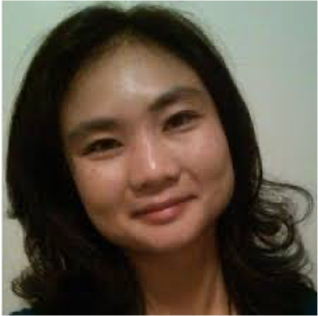Lenette graduated with a BA in the Honors Program with a major in Biology and minor in Asian Studies from Swarthmore College where she worked in the laboratory of Elizabeth Vallen on yeast cell cycle regulation. As part of the Medical Scientist Training Program at Case Western Reserve University, she obtained an MD and PhD in the Molecular Virology Program. Her graduate work in the laboratory of Ganes Sen focused on dsRNA mediated signaling and innate immunity in the context of paramyxovirus infections. She completed an internship and residency in Internal Medicine at New York Presbyterian – Weill Cornell and a fellowship in Infectious Diseases in the Partners program at Massachusetts General Hospital and Brigham and Women’s Hospital. Her postdoctoral research in the laboratories of Sarah Fortune at the Harvard T.H. Chan School of Public Health and Galit Alter at the Ragon Institute of MGH, MIT, and Harvard focused on delineating the humoral landscape of immune responses to Mycobacterium tuberculosis. Lenette’s initial work characterized divergent humoral profiles in patients with clinically characterized distinct tuberculosis (TB) disease states that support an immunomodulatory role for antibodies. Using this approach, she went on to examine a population of individuals highly exposed to Mtb yet clinically not recognized as part of the spectrum of human disease. She showed robust humoral profiles in the context of non-canonical T cell responses, providing immunological parameters to help define an additional state of human TB and an alternative model towards understanding host responses to Mtb exposure. Lenette joined the Division of Infectious Diseases and Geographic Medicine at UT Southwestern in 2019 with a clinical practice primarily at Parkland Health and Hospitals System and a research lab aimed at identifying the mechanisms by which antibodies modulate the host immune response in TB. Beyond TB, dissecting antibody functions is fundamentally relevant to all infectious disease where antibodies interface host and microbe, informing diagnostic, therapeutic and vaccine design.
Lenette graduated with a BA in the Honors Program with a major in Biology and minor in Asian Studies from Swarthmore College where she worked in the laboratory of Elizabeth Vallen on yeast cell cycle regulation. As part of the Medical Scientist Training Program at Case Western Reserve University, she obtained an MD and PhD in the Molecular Virology Program. Her graduate work in the laboratory of Ganes Sen focused on dsRNA mediated signaling and innate immunity in the context of paramyxovirus infections. She completed an internship and residency in Internal Medicine at New York Presbyterian – Weill Cornell and a fellowship in Infectious Diseases in the Partners program at Massachusetts General Hospital and Brigham and Women’s Hospital. Her postdoctoral research in the laboratories of Sarah Fortune at the Harvard T.H. Chan School of Public Health and Galit Alter at the Ragon Institute of MGH, MIT, and Harvard focused on delineating the humoral landscape of immune responses to Mycobacterium tuberculosis. Lenette’s initial work characterized divergent humoral profiles in patients with clinically characterized distinct tuberculosis (TB) disease states that support an immunomodulatory role for antibodies. Using this approach, she went on to examine a population of individuals highly exposed to Mtb yet clinically not recognized as part of the spectrum of human disease. She showed robust humoral profiles in the context of non-canonical T cell responses, providing immunological parameters to help define an additional state of human TB and an alternative model towards understanding host responses to Mtb exposure. Lenette joined the Division of Infectious Diseases and Geographic Medicine at UT Southwestern in 2019 with a clinical practice primarily at Parkland Health and Hospitals System and a research lab aimed at identifying the mechanisms by which antibodies modulate the host immune response in TB. Beyond TB, dissecting antibody functions is fundamentally relevant to all infectious disease where antibodies interface host and microbe, informing diagnostic, therapeutic and vaccine design.

